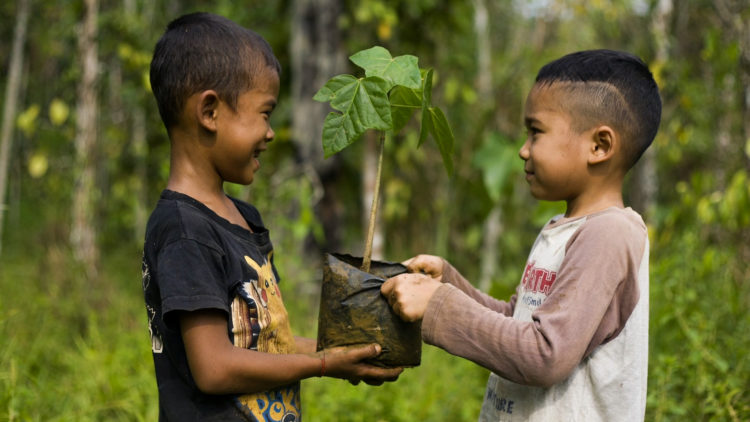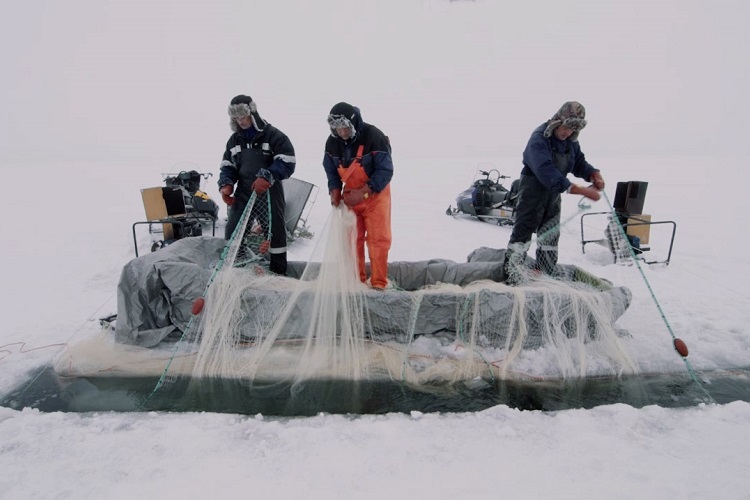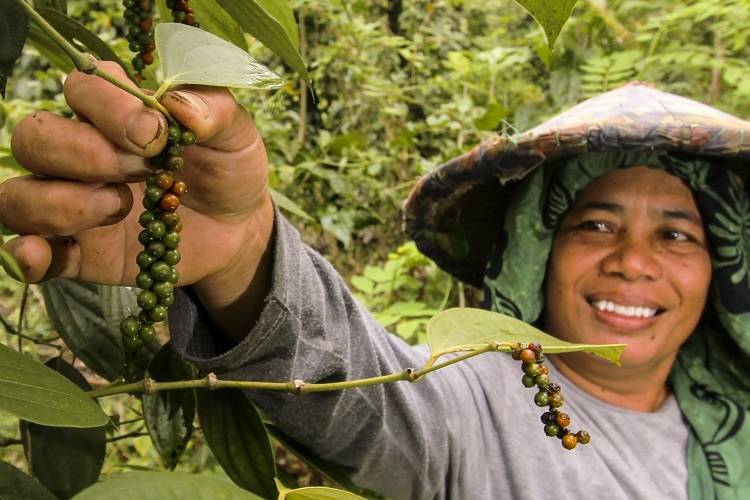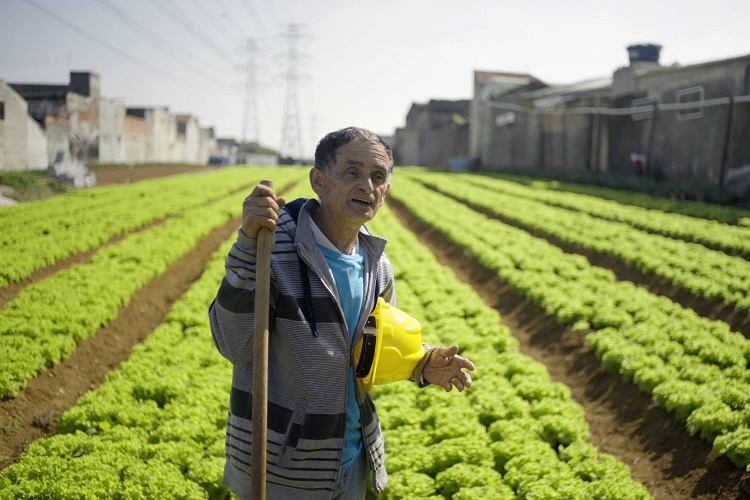St Andrews Prize for the Environment 2021 finalists

Three global finalists have been selected for the prestigious St Andrews Prize for the Environment 2021.
Following hundreds of entries from around the world, the finalists for the $100,000 award were selected by the Prize’s Board of Trustees, which includes world-renowned experts representing conservation, sustainable development, engineering and economics.
The finalists for the 2021 Prize are:
- Snowchange Cooperative – re-wilding actions in Finland
- Planet Indonesia – conserving at-risk ecosystems through village-led partnerships
- Cities Without Hunger – jobs, income, providing food: everything starts with a garden.
The winner will receive US$100,000 and the runner(s)-up will receive US$25,000.
The Prize is an environmental initiative led by the University of St Andrews that recognises global projects which make significant contributions to environmental issues and concerns, with a focus on sustainability, conservation, biodiversity and community development.
Chaired by Dr Hayaatun Sillem CBE, Chief Executive of the Royal Academy of Engineering, the Board of Trustees for the Prize includes University of St Andrews Principal and Vice-Chancellor, Professor Sally Mapstone FRSE and Professor Sir Ian Boyd FRS, Chair of the Environmental Sustainability Board, Professor of Marine Biology and Co-Chair of the Scottish Government’s Environmental Council.
Since its establishment in 1998, the Prize has awarded more than US$2 million in funding to environmental projects around the world, supporting a wide range of initiatives that address diverse topics including sustainable development, food security, recycling, health, renewable energy and community education. Entries to the Prize have been global, local and/or scalable, outlining how they will socially and economically impact the communities where they are based.
The Prize has provided crucial support to a diverse range of projects which have reduced human-animal conflict, promoted environmental justice, developed new solutions to reduce and eliminate waste, and championed urban regeneration.
The 2021 finalists will deliver presentations to the judges and University of St Andrews students, before participating in a live event on the evening of Tuesday 5 October, where the winner will be announced. The 2021 award will go to the project that the judges believe displays the best combination of science, economic realism and sustainability.
This year the Prize will be fully online with the opportunity for the public to take part in the live event, which will also feature an interactive talk from 2020 Prize winner Dr Gladys Kalema-Zikusoka from Conservation Through Public Health.
The three finalists for the St Andrews Prize for the Environment 2021 are:
Snowchange Cooperative – re-wilding actions in Finland
Snowchange is a network of indigenous and local-traditional communities working on cultural, environmental and science issues predominantly in Finland. Snowchange works to support directly programmes, mostly in the boreal and the Arctic, but also selectively globally, which advance indigenous cultural issues and well-being, rewilding and ecosystem restoration as well as landscape-scale restoration of community lands across the north.
Snowchange is a far-reaching ecological restoration programme building on living traditional knowledge in North Karelia as well as in other Finnish regions.

Planet Indonesia – conserving at-risk ecosystems through village-led partnerships
Planet Indonesia creates enabling conditions for rural communities to engage in good governance of their natural resources. Their rights-based approach addresses the root causes of biodiversity loss: rural poverty, gender inequality and food security. Planet Indonesia believes community-led conservation is a solution to climate change, rural poverty and species loss.

Cities Without Hunger – jobs, income, providing food: everything starts with a garden
Cities Without Hunger stimulates urban agriculture in Brazil with the construction of vegetable gardens to create jobs and income for vulnerable groups in São Paulo´s and Rio´s poor suburbs. Through the production of organic food to combat the malnutrition of the most vulnerable poor population, the project aims to reduce poverty and inequality, and introduce a sustainable agriculture. The aim has been to encourage the social integration of marginal groups through gardening and to improve the nutrition of adults and children.

Find out more about the finalists and their projects.
Category Awards